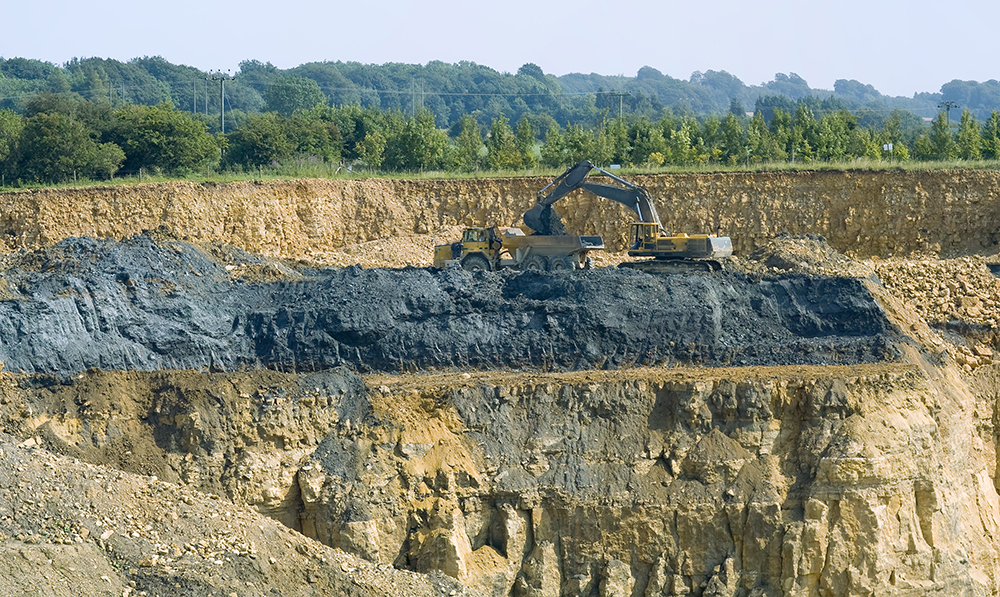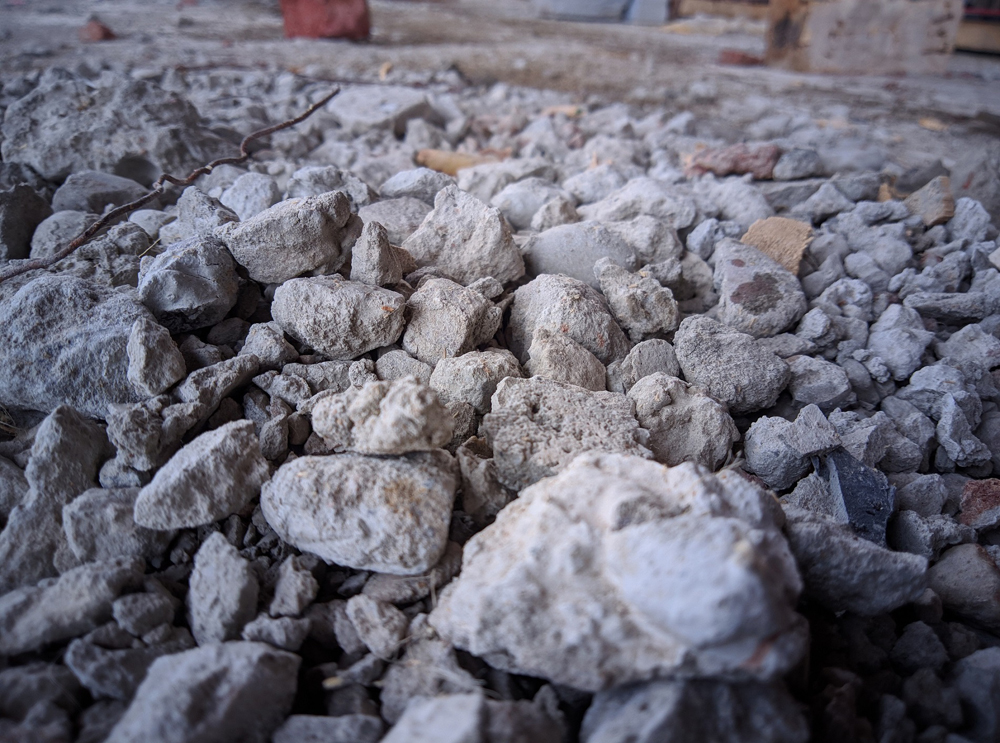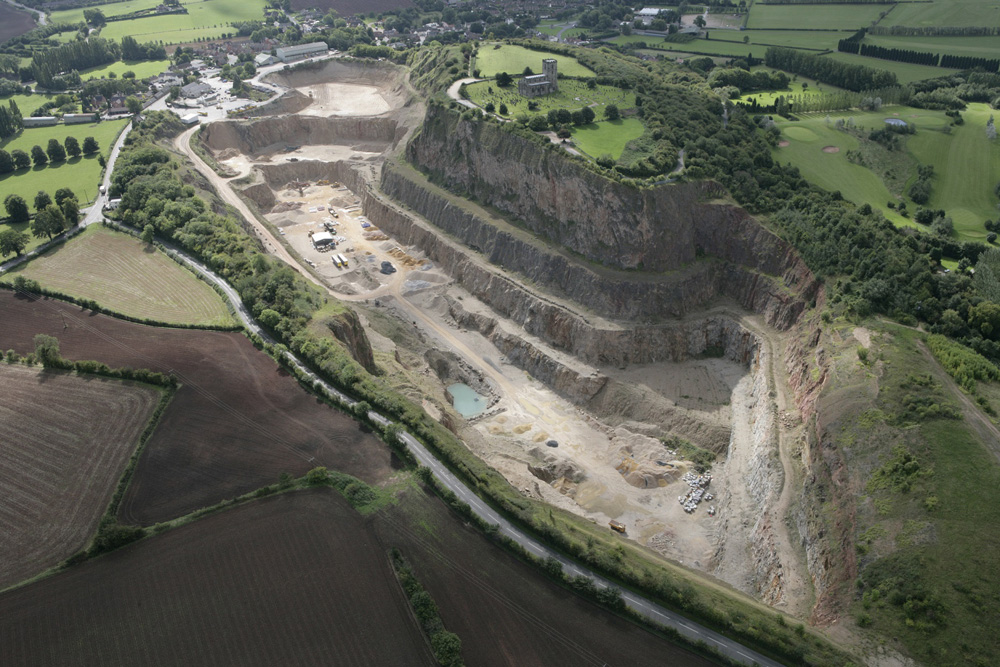
Few parts of the world have not been affected in a significant way by the COVID-19 pandemic. In the UK, the British government ordered a lockdown of public life, including a two-metre social-distancing-in-public guideline, on 23 March 2020. The lockdown has hit the national aggregates sector hard, with quarries and mineral production plants forced to close. Many large and small- to medium-sized mineral product suppliers have also accessed the government’s furlough scheme, whereby the state pays 80% of an employee’s wages up to £2,500 per month to 31 July 2020, and a varying lesser percentage from 1 August to 31 October, to avoid immediate redundancies.
Meanwhile, the Hillhead exhibition, the UK’s bi-annual showcase of the latest premium quarrying, construction and recycling equipment, has been postponed. Staged in the former Tarmac Hillhead Quarry near Buxton, Derbyshire, central England, the event, which had been due to take place 23-25 June 2020, will now take place 22-24 June 2021. To avoid a clash with a rescheduled Hillhead, which attracted nearly 20,000 visitors in 2018, Plantworx 2021, another popular exhibition for the UK construction, quarrying and recycling equipment industries, held at the East of England Arena in Peterborough, has been put back until June 2022.

Employing 74,000 people, the UK aggregates and manufactured mineral products industry is one of the biggest in Europe. Putting the current COVID-19 disruption in context are statistics published by the Mineral Products Association, the trade body for the UK’s aggregates, cement and concrete industries, in its Profile of the UK Mineral Products Industry - 2018 Edition. The influential report notes that 390 million tonnes of aggregates and manufactured mineral products are produced in Great Britain every year. That output is four times the volume of energy minerals produced in the UK per annum, including oil, gas and coal. The aggregates and manufactured mineral products industry has an £18bn annual turnover, with £6.8bn of gross value added generated by the industry. The industries supplied by the aggregates and manufactured mineral products industry have a yearly turnover of £513bn. The construction industry, the aggregates and manufactured mineral products industry’s primary customer has an output value of £
152bn. Furthermore, 3.5 million jobs are supported by the aggregates and manufactured mineral products industry’s supply chain.
The latest sales figures for the UK mineral products sector show the extent of the COVID-19 effect. Construction market demand for heavy-side building materials in Great Britain, including aggregates, asphalt, ready-mixed concrete and mortar, declined significantly at the start of 2020.
The MPA noted that the fall reflected a “double-whammy” of flooding and adverse weather affecting work on-site in February and the early impact of the COVID-19 lockdown at the end of March. “These two factors brought any early signs of market sales improvements recorded in the second half of last year to a halt,” said an association spokesperson.
Sales volume of ready-mixed concrete and aggregates (crushed rock and sand & gravel), two materials used across most types of construction work, declined by 5.7% and 4.0% respectively over the quarter. For ready-mixed concrete, this follows three consecutive years of market declines since 2017, as Brexit-related uncertainties put a brake on commercial construction work, notably for offices, while housebuilding slowed in the capital. The housing and commercial property sectors have also been significantly impacted by the COVID-19 lockdown, with most significant housebuilders having closed sites throughout the last week of March and April, and office construction affected by the collapse in business and consumer confidence.
Simultaneously, sales of mortar, primarily used in housebuilding, fell by a further 1.6% in the first quarter of 2020, after a 7.9% fall at the end of last year. The MPA says subdued mortar sales volume over the past 18 months is a clear indication of the underlying weaknesses in housebuilding, even before accounting for the impact of the COVID-19 lockdown.
Weak demand for asphalt led to a 9.4% fall in sales volume in the first quarter of 2020 compared to the previous quarter, the biggest quarterly fall since mid-2012. Demand in Scotland and the South West of England was particularly affected. In Scotland, the market has been depressed since the highs recorded in 2016, when sales were boosted by large infrastructure projects, including the Forth Replacement Crossing and the Aberdeen Western Peripheral Route. In South West England, surfacing works were particularly hit by exceptional rainfall throughout February.

“Weak underlying market demand for heavy-side building materials at the start of the year, combined with construction sites closures, are having a significant impact on mineral products businesses. There is an even weaker and more uncertain outlook for the rest of 2020,” explains Aurelie Delannoy, MPA director Economic Affairs. “Since March, demand for ready-mixed concrete declined significantly as a result of widespread closures of housebuilding and commercial construction sites, as well as some early hiatus in major infrastructure projects, including Thames Tideway. By contrast, asphalt demand was somewhat supported by Highways England to supply the critical road network.
“Inevitably, large mineral products producers and SMEs (small- to medium-sized enterprises) alike have had to temporarily close operational sites throughout April, leading to an estimated 80-90% capacity shutdown across the industry due to construction and manufacturing customers closing down. Inevitably there are high levels of furloughing throughout the supply chain, and mineral products are no exception. However, with the prospects of construction and other sites gradually resuming work, mineral products producers are now focussing efforts on reopening their sites safely, bringing back staff and managing operations and work under strict safety guidance. The industry stands ready, able and willing to supply the materials needed for construction work to restart wherever it is safe to do so.”
MPA CEO Nigel Jackson said: “It has been as torrid a time as any of us can remember. Just as optimism was increasing with Brexit uncertainty lifting, the combination of flooding and COVID-19 has knocked the economy for six. We are down to around 10 to 20% of normal capacity but still supplying strategic and essential sites as well as agriculture, utilities and local road maintenance. The industry has the material to supply as and when construction and manufacturing customers reopen knowing it can extract, process, manufacture and deliver safely if customers have new and safer working systems in place.
“We were pleased to be recognised as essential by the government, and our members are ready to support the recovery and kick-start the economy. We hope that government will maintain a ‘can-do’ approach to investment and invest in much needed and overdue infrastructure and that HS2 [the UK’s planned high-speed rail network] having been given the green light will not be frustrated by mischievous legal interventions at this critical time for our country. Government has to recognise the risks all future infrastructure projects could now face from legal action and pull harder on the national need lever to protect a return to growth and to protect jobs.”
The MPA has written to the Chancellor of the Exchequer, Rishi Sunak, having published a policy paper setting out the impact of coronavirus on the sector proposing some key policy steps to help get the industry through the crisis and be ready to support the recovery. It also warns of an anticipated credit squeeze as the economy reopens, a significant risk for those that survive the current shutdown.
With cash retention being the number one aim after the safety of employees and customers, the paper calls for several tax reliefs to help businesses hold on to cash. These include a further deferral of VAT, deferral of employers National Insurance, Corporation Tax and Business Rates. It also lists some additional charges and costs that should be able to be deferred. Greater flexibility and tapering of furloughing will, the paper states, soon need to be evaluated to avoid a ‘cliff-edge’ at the end of June that may trigger avoidable redundancies.
The MPA paper also calls for ‘Time to Pay’ arrangements with HMRC for the Aggregates Levy to be more readily available. This tax is falling due now as businesses face a very challenging cash environment and making deferment more easily accessible would be invaluable.
Paul McManus, chairman of the British Aggregates Association (BAA) and owner of Cloburn Quarry Company, in Lanark, Scotland, has stressed to BAA members that both he and the association’s officers were making every effort to support the membership throughout the COVID-19 pandemic.
In a statement sent to members, McManus said that despite the good relationship built up between the industry and HM Treasury following the recent Aggregates Levy review process held nationwide, it was “unfortunate” that the UK Chancellor had not so far chosen to suspend Aggregates Levy payments. McManus said this was despite HM Treasury putting forward many other beneficial measures to help the industry.

BAA’s chairman informed association members that he has sent a letter to the Chancellor asking him to clarify and put right the anomaly of Aggregates Levy payments at this time. The question of loans provided by banks is always a contentious one even when they are under a scheme supported by the government. And, in his statement to members, McManus stressed that those companies with healthy balance sheets need to be aware that banks may interpret the rules differently to how the government intended. He emphasised that members can seek the advice of the association which is supported by organisations in the legal profession along with the CBI.
Meanwhile, the UK construction industry bodies the Builders Merchants Federation (BMF) and the Construction Products Association (CPA) have joined forces to identify materials likely to be in short supply in the reopening period following the COVID-19 pandemic.
The BMF and CPA stated that they are monitoring the manufacturing and distribution of their respective members, adding that their collaboration will help meet the needs of housebuilders, contractors and SME builders. The two bodies are heading up the Product Availability Group, set up by the Construction Leadership Council (CLC), which is coordinating the industry’s response to the COVID-19 crisis.
The BMF says it is gaining information from across its membership – comprising 710 members with combined sales of £32bn – to identify items likely to be in short supply and take steps to address them.
According to the BMF, early shortfalls in plaster and plasterboard supply were flagged up under the monitoring system, but steps are being taken to resolve that shortfall.
Speaking in late April 2020, John Newcomb, chief executive of the BMF, said: “Currently we are seeing no major issues, apart from plaster and plasterboard, but manufacturing is now scheduled to increase to address this problem.
“As a group, we are meeting every two weeks to keep a watching brief on the situation across the entire construction industry supply chain.
“We want to deal with potential issues proactively, to ensure demand is met across the construction sector.
“Nothing like this has happened before, and the work we are doing is unprecedented.”
Peter Caplehorn, CPA chief executive, added: “The CPA has been closely monitoring the operational status of its members. They are looking for sustainable demand for their products before starting to phase in more factory production, while at the same time ensuring the health and well-being of their workforce.
“With the BMF, we are discussing with government and the wider industry the need to encourage builders and merchants to safely reopen more sites and branches, in addition to continuing support for ‘essential’ activity such as key NHS and infrastructure projects, repair and maintenance.”
UK demand for aggregates and other manufactured mineral products will be healthy once again when the current COVID- 19 pandemic storm subsides. The British government’s spring budget announcement of a £27.4bn revamping of the UK’s roads network and the implementation of its ‘Levelling Up’ agenda, improving Northern England transport and other infrastructure so that it more closely resembles the south of the country, will boost product sales. Further sales momentum will come from the continuation of the HS2 and the Hinckley Point Nuclear Power Station megaprojects, and the resumption of what had been, up until the late March 2020-imposed lockdown, healthy levels of residential and commercial construction.
Heartening evidence of the coronavirus storm subsiding comes from some major UK and Ireland building materials producers partially reopening many of their big production sites.
Breedon Group, a major independent UK and Ireland construction materials business, has resumed clinker production at its two cement plants and is “progressively” reopening some of its other sites.
In total, over 80% of the company’s UK staff has been furloughed or temporarily laid off in the Republic of Ireland on full pay.

In a group statement released in late April 2020, Breedon said it had been “encouraged” by announcements from several companies in the broader construction sector confirming their intention gradually to reopen their operations in several regions of the UK and Ireland.
Ireland’s quarrying and concrete production industries have also been adversely affected by the COVID-19 pandemic.
“We have seen only around 10% of normal industry activity since the [full] lockdown in Ireland started on 27 March,” said Gerry Farrell, chief executive officer of the Irish Concrete Federation (ICF), during a telephone interview with Aggregates Business on 7 May 2020. “While there was a certain amount of panic buying and building up of stocks in the two weeks before the lockdown, the trade completely died in April. The only work happening here is essential services – such as supplying building materials to COVID-19-related health projects, and specific agriculture works. All the main construction sites are closed.”
In its recently published Essential Aggregates - Providing For Ireland’s needs to 2040 report, the ICF heartily welcomes the Irish government’s statement in the National Planning Framework 2018 acknowledging the essential role of aggregates in Ireland’s future development.
The ICF report succinctly highlights the national importance of aggregates, stating: “Ireland has abundant natural reserves of high-quality aggregates (stone, sand and gravel). These aggregates are the essential raw materials from which Ireland’s future infrastructure will be built, including our homes, offices, schools, hospitals and transport network.”
Figures contained in the highly detailed document show that as of 2018, the Irish quarrying and concrete production industries directly employed over 5,000 people and pay out more than €300mn a year in wages and salaries. Ireland has more than 500 large commercial quarries extracting aggregates. Around 36mn tonnes of aggregates product was produced in the country in 2018, excluding aggregates used to manufacture downstream products, while overall aggregates demand is 12 tonnes per capita – double the average of the EU28. Ireland is home to over 200 concrete manufacturing plants. In 2018, the Irish quarrying and concrete production industries produced 4.8mn m³ of ready-mixed concrete, 125mn concrete blocks, 2mn tonnes of road surfacing materials, 1mn tonnes of agricultural lime, and exported €125mn worth of precast concrete.
The October 2019 publication of the ICF report followed the Irish government’s announcement the previous year of Project Ireland 2040 – an overarching policy and planning framework for the social, economic and cultural development of the country for the next 20 years and beyond. It includes the National Development Plan – a 10-year strategy for public capital investment of almost €116 billion to 2027 and the 20-year National Planning Framework.
Farrell said Irish construction sites were due to reopen on 18 May, but the impact of COVID-19 on the delivery of the Irish government’s national investment plan is uncertain. He continued: “Capital spending in Ireland was budgeted to go up by more than 10% this year. But as a result of the government’s spending on the COVID-19 pandemic, including a temporary wage subsidy scheme for workers and the pandemic unemployment payment for workers who have been laid off, the budget has been completely blown. We will need to wait and see how this affects public investment.
“We had a general election in the first week of February, but we still have no government. That creates its own uncertainty. What should give confidence to the construction industry and industry which supplies the construction sector is that the big issue in the general election was homelessness and the shortage of housing. There is an underlying demand for more housing and schools as the population is going up. There’s going to be another million people living here by 2040. The government will have to invest in the infrastructure and services to meet new societal demands. This will not be achieved without the products produced by our members, so it is important to ensure that there is a long-term plan to preserve access to raw materials.”

On 25 February 2020, the ICF held a major quarry planning conference in Newbridge. The event was held as a follow-up to the publication of the ICF’s Essential Aggregates – Providing for Ireland’s Future to 2040 report, which was launched by Minister for Natural Resources Sean Canney in October 2019.
The conference was attended by ICF members, local authority planners, environmental NGOs (non- government organisations), regulatory bodies and other stakeholder organisations. Those in attendance listened to presentations from national and European experts, including leading environmental NGOs, industry representatives and legal and industry planning experts.
Some of the themes and issues which arose on the day included the role of aggregates in the circular economy, the essential nature of aggregates for Ireland’s future development, and the effective regulation of quarries. Further discussion topics included the need for legislative change concerning quarries, the importance of effective action against unauthorised quarry operations and national procurement policy.
The ICF says it will continue to support its members to ensure that they are fully briefed on national developments as Ireland responds to the threat of COVID-19. The ICF has also issued ongoing guidance to members on COVID-19 and says it will continue to update this guidance as the situation evolves.
According to CRH chief executive Albert Manifold, the Irish building materials giant’s financial strength and experienced
leadership teams have left him in “no doubt” that the group will emerge in good health as COVID-19 pandemic disruption eases.
Manifold’s reassuring comments came as the company revealed its Q1 2020 like-for-like sales were up 3% compared to the same period of last year.
COVID-19 mitigating actions implemented across CRH include a 25% salary reduction for all leadership teams and board members; temporary lay-offs and a furloughing arrangement in affected areas; and reducing working capital in line with lower activity levels.
Speaking on 22 April 2020, Manifold said: “We have had a good start to the year. Although the global spread of COVID-19 brings challenges for us all, I have no doubt that with the financial strength of CRH and the experience of our leadership teams, we will endure through these unprecedented and uncertain times.
“All necessary actions are being taken to protect our employees and businesses and ensure that we are well-positioned for the recovery in our markets.”
A CRH statement released with the Q1 2020 trading figures says the group is in a strong financial position, holding over US$6bn of cash and cash equivalents.
While the UK and Irish government’s responses to the COVID-19 pandemic remain fluid, the respective aggregates and manufactured mineral products industries are in good shape to bounce back quickly following the peak of the coronavirus crisis.








